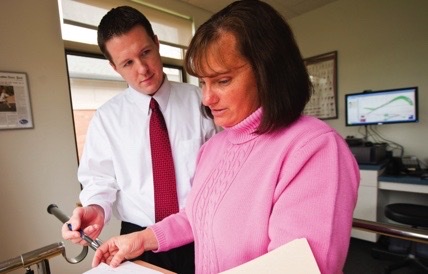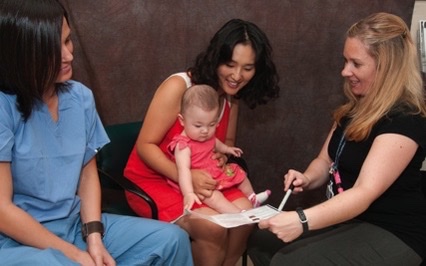Contents
©2025 by the American Board for Certification in Orthotics, Prosthetics & Pedorthics, Inc. All rights reserved.
No part of this document may be produced in any form without written permission of the American Board for Certification in Orthotics, Prosthetics & Pedorthics, Inc.
Residency Site Benefits Brochure
January 2021
A Residency Program Can:
Improve Your Productivity

- Having a resident can allow your to increase your productivity without compromising patient care.
- Typically, residents quickly develop the skills needed to obtain a detailed patient history and thorough patient assessment. This allows you to handle other duties and responsibilities while patient care continues to be provided.
- Many residency directors report that they are able to increase their productivity by 25-40% with the presence of a resident. Residents become familiar with your patients, allowing them to handle various tasks related to patient needs, such as performing adjustments and repairs. This frees you up to manage your practice or see other patients.
- Residents become familiar with your patients, allowing them to handle various tasks related to patient needs, such as performing adjustments and repairs. This frees you up to manage your practice or see other patients.
- Residents can handle phone calls from patients, therapists or physicians. They can also answer questions from billing and technical staff or outside vendors.
Motivate Other Practitioners to Keep Current
- A residents' recent O&P education exposes them to the latest theories and research, which can serve to motivate your practice to explore new technologies and clinical advances.
- Residents can encourage you and the other practitioners in your practice to become more familiar with current issues like outcome measures and evidence-based practices.
- Working with a resident can challenge you to think about your current techniques and procedures, which ultimately benefits your practice.
Serve as a Valuable marketing Tool for Your Practice
- Residents are required to deliver at least one presentation promoting the O&P profession, which can directly promote your practice. it also allows residents to become familiar with public speaking and networking, which increases your practice's exposure.
- As referral sources begin to see that your practice is helping to train the next generation and acquiring a clear advantage of access to the latest patient care technologies, they will begin to recognize your practice as a leader within the profession and your community.
Function as an Extended Interview for Future Staffing Needs
- A residency gives you 12 or 18 months to work with the resident, allowing you to assess the skills that are essential for a valuable employee, but may be hard to glen in one or two interviews.
Bring a Diverse Skill Set to Your Practice
- Many residents have specialized skills and understanding in current technology, hardware, software or process-workflow management that could benefit your practice.
- Some residents may have previous experience in other allied health professions and can greatly add to your practices' base of knowledge.
- Residents can be given the responsibility of updating and verifying professional resources since they have recently been exposed to these resources while in school.
Be Inspirational
- A resident's eagerness and energy can be contagious to the rest of the staff.
Help You Give Back to Your Profession
- By building a bridge between the O&P academic programs and the world of clinical practice, you are contributing to the capability of future practitioners, as well as assuring safe and effective patient care.
Hosting a residency program can offer you and your colleagues numerous benefits. That's why ABC helped create the clinical training residency program over 20 years ago - and continues to support NCOPE and its residency requirements.

We encourage you to consider hosting a residency program if you aren't already. It's a great way to give back to the profession, help future candidates for the ABC exam (just like you used to be) and provide tangible benefits for your own practice.






